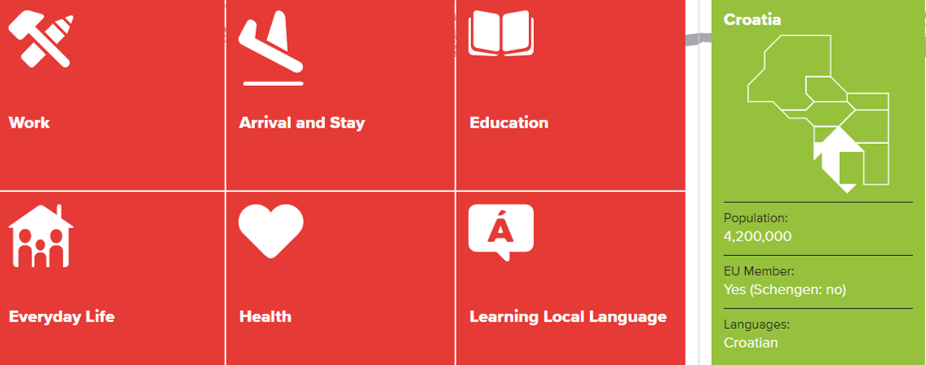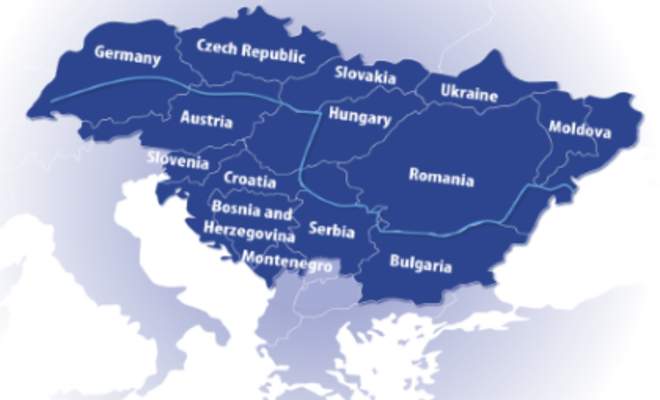
A platform for facilitating migrants' access to information on their rights and responsibilities
Today the Danube Compass Platform was presented in Zagreb, Croatia to help migrants find their way to economic and social integration in the society to which they have arrived. The Danube Compass covers all major aspects of living: housing, employment, learning the local language, education, health, and everyday life, offering an overview of all the important rights and opportunities depending on the national context of the host country. The platform currently offers information for Croatia, Slovenia, Austria, Germany, the Czech Republic, Slovaki, Hungary and Serbia.
Up until now, information on the rights and obligations of people who live or are coming to live in another country has been dispersed across many different places, and rarely available in foreign languages. This situation is what prompted the project. In the first stages of the project, it was important to see what information is needed, then to collect that informationn and have it translated. For this reason, numerous interviews were undertaken as well as piloting and testing the usability of the information with migrants, institutions, NGOs and volunteers to arrive at a platform with a comprehensive overview of the information needed to make integration easier.
The Croatian Government's Office for Human Rights and Rights of National Minorities, which participated in the project, emphasizes the importance of integrating people of migrant background. The Representative of the Office, Mrs. Helena Bakić, emphasized that integration is a dynamic and bidrectional process that requires changing the host country as well as the people that come to it. She also pointed out that the process of integration is a long-lasting one, as it continues until the person of migrant background becomes and feels like a member of society. The process is also multidimensional as it includes participation in economic, social, cultural and civic participation.
"Through the Danube Compass, we want to offer a central place for all integration issues, one that migrants can use, as well as the institutions and organizations that work with them everyday. The added importance of the compass is to promote European mobility. Namely, the Compass is important not only as a tool for foreigners coming to our society, but is also a source of support for those returning to Croatia who need information, including Croatians who are temporarily or permanently in one of the partner countries of the Danube region,” said Sara Kekuš, from the Centre for Peace Studies.
The Croatian version of the Compass has informational available in Croatian, English and the most prominent languages amongst the refugee population in Croatia – Arabic, Persian, and Urdu.
The Danube Compass was created as part of the project DRIM - Danube Region Information Platform for Economic Integration of Migrants funded by the Interreg European Union Program. The project is run by the Science Research Center of the Slovene Academy of Sciences and Arts, and in Croatia, by the Center for Peace Studies with a Strategic Partner, the Government Office for Human Rights and Rights of National Minorities. It began in 2017 and lasts until June next year. The Centre for Peace Studies invites all interested organizations and institutions for whom this information could be useful to jointly create a platform that will become a central place for information on migrants' rights and obligations.
The platformi s available at: hr.danubecompass.org
For more information, please contact the Centre for Peace Studies here on Commonfare or by mail at cms@cms.hr
